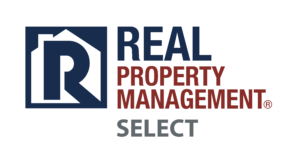Are Rental Properties a Good Investment? The In-Depth Analysis
For years, rental properties have stood as one of the most preferred avenues for generating passive income. But before you embark on this journey, it’s crucial to delve into the intricacies of real estate investment. Acquiring knowledge upfront significantly enhances the odds of a successful venture.
So, are rental properties a wise investment for you? Let’s explore this question in detail.
Understanding Rental Properties
A rental property is essentially real estate leased to tenants for a specific duration in exchange for monthly rent. The primary objective is income generation, either to cover the property’s expenses and mortgage or to yield a profit.
There are three primary categories of rental properties:
- Residential properties: These include homes or apartments leased to individuals or families for residential purposes, ranging from single-family homes to expansive apartment complexes.
- Commercial properties: These encompass spaces leased to businesses, such as office buildings, retail outlets, and warehouses.
- Industrial properties: This category includes large spaces used for manufacturing or storage, like factories, assembly lines, and distribution centers.
Advantages of Investing in Rental Properties
Investing in rental properties is a strategy widely adopted by investors aiming to diversify their portfolios, with the goal of long-term appreciation and steady monthly income. When chosen wisely, rental properties offer numerous advantages not found in other investment avenues.
Here are five notable benefits:
- Steady income stream: Rental properties, particularly when fully occupied, provide a consistent source of passive income. This income can be utilized to cover the property’s expenses, with any surplus constituting profit.
- Property appreciation: Over time, real estate typically appreciates in value. This means that investors not only earn from monthly rents but also benefit from the increased property value when selling.
- Tax benefits: Owners of rental properties can leverage various tax deductions, including those related to property management, mortgage interest, and property taxes. These deductions reduce overall tax liability, increasing the net income from the property.
- Diversification of investment portfolio: Real estate, as a tangible asset, allows for portfolio diversification. Spreading investments across different asset types helps mitigate risks associated with market volatility.
- Leverage: Investors can purchase rental properties using borrowed capital, allowing them to acquire a more valuable property than they could with cash alone, thereby increasing potential returns.
Disadvantages of Investing in Rental Properties
While rental properties offer several advantages, they also present their own set of challenges. Before entering the world of real estate investment, it’s essential to consider both the pros and cons.
Here are five disadvantages to keep in mind:
- Property management challenges: Owning a rental property entails regular maintenance and management. This includes addressing tenant concerns, arranging repairs, and handling vacancies. Property management can be time-consuming and, for newcomers, occasionally stressful.
- Market fluctuations: The real estate market can be unpredictable, with property values subject to decreases due to various factors, including economic downturns or neighborhood changes. Rents may also stagnate or decrease, affecting the return on investment.
- Financial risks: Tenant default on rent can lead to financial strain, especially when a mortgage is involved. Unforeseen expenses, like major repairs or legal fees, can arise, adding to the financial burden.
- Illiquidity: Real estate is not a liquid asset. Unlike stocks or bonds, which can be sold quickly, selling a property can be a lengthy process. This means that accessing the capital tied up in your property might not be readily available if needed urgently.
- High entry and exit costs: Acquiring a property involves significant upfront expenses, such as down payments, inspections, and closing fees. Similarly, selling a property may incur agent commissions and other associated costs, which can impact the overall return on investment.
Evaluating a Rental Property Investment
Investing in real estate requires a blend of diligence, knowledge, and intuition. Identifying a sound investment opportunity goes beyond mere attraction to a property; it necessitates thorough analysis on multiple fronts.
Here’s a breakdown of key aspects to consider when evaluating the viability of a rental property investment.
Market research: Commence with an in-depth study of the local real estate market. Examine historical price trends, vacancy rates, and rent prices. Understand neighborhood demographics, future development plans, and overall demand. Locations with thriving job markets, quality schools, and amenities typically indicate robust rental demand.
Financial considerations: Budgeting and forecasting play a pivotal role. Evaluate potential rental income versus property expenses, such as mortgage, taxes, insurance, and maintenance. Calculate the return on investment (ROI) and assess the property’s potential for appreciation. Account for initial renovation costs and ensure a buffer for unforeseen expenses.
Inspections: Before committing to a purchase, arrange for a professional property inspection. This will identify structural issues, necessary repairs, or potential safety hazards. Uncovering these aspects in advance can result in significant savings in the long run and may also provide negotiation leverage.
Legal considerations: Ensure the property adheres to all local zoning laws and rental regulations. If the property is part of a homeowners’ association (HOA), understand the rules and associated fees. Familiarize yourself with tenant rights in the area to avoid potential legal pitfalls in the future.
Negotiating: Skillful negotiation can make a substantial difference in the overall return on investment. Base your offer on market research, inspection results, and financial calculations. Remember that every dollar saved during negotiations increases your potential ROI.
Additional Considerations
While financial and logistical aspects of real estate investment are paramount, other nuanced considerations can profoundly impact the success of a rental property venture. Management decisions, tenant relations, and a holistic perspective are vital.
Here’s a closer look at these critical areas:
Self-management vs. hiring Property Management Select
At Real Property Management Select, we understand that the world of rental property management can be complex and demanding. That’s where we come in. Our dedicated team brings a wealth of experience, expertise, and a track record of successful property management. When you choose RPM Select, you’re not just gaining a property management service; you’re securing peace of mind. We handle every aspect of your rental property, from tenant screening to maintenance and financial management, with precision and care. Our deep knowledge of the industry, local markets, and rental laws ensures that your property is in the best hands. With RPM Select, you can count on efficient operations, tenant satisfaction, and the optimization of your rental property’s potential. Let us take the hassle out of property management, so you can enjoy the benefits of a stress-free, profitable investment.




Leave a Reply
Want to join the discussion?Feel free to contribute!